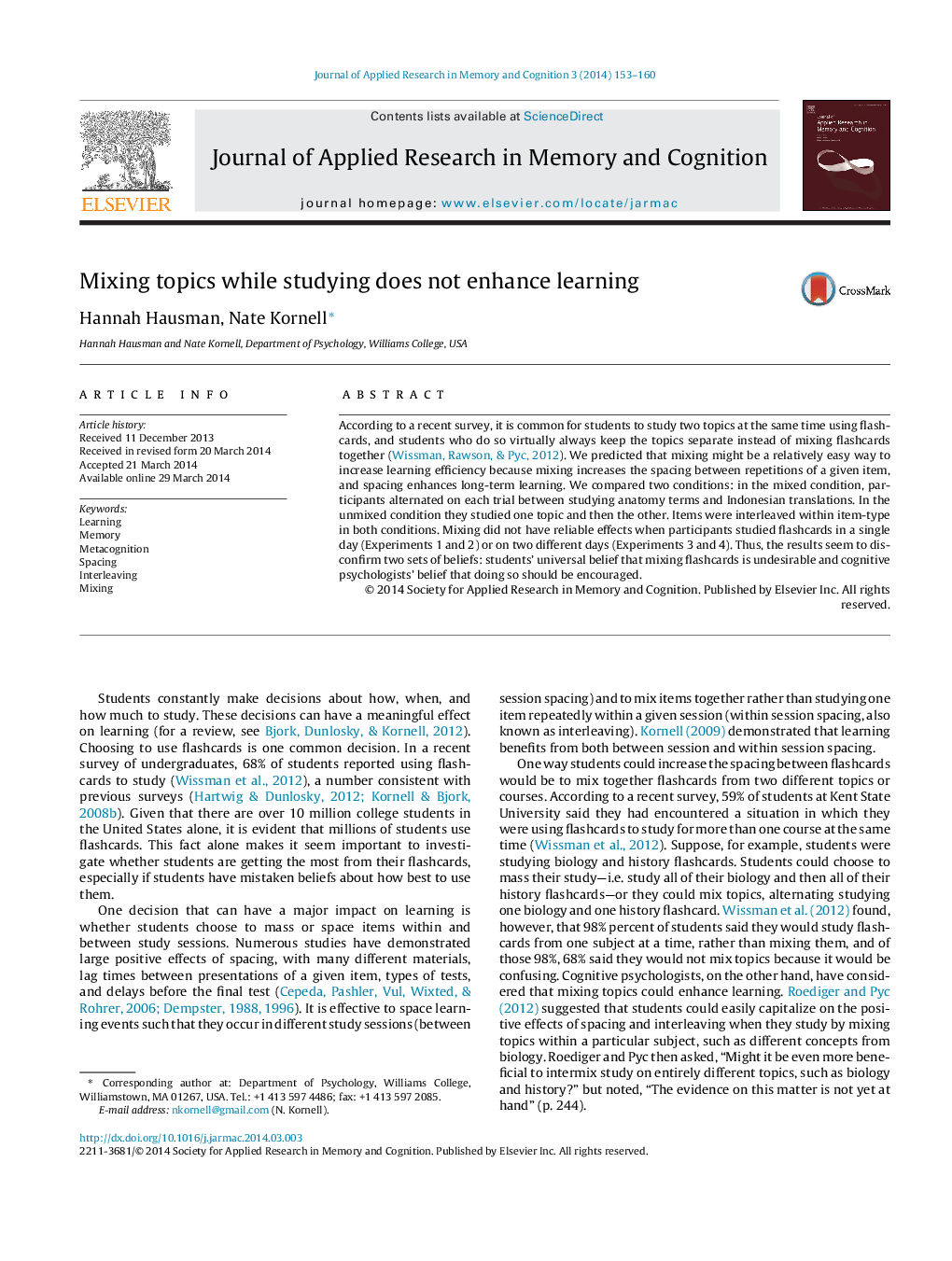| Article ID | Journal | Published Year | Pages | File Type |
|---|---|---|---|---|
| 881711 | Journal of Applied Research in Memory and Cognition | 2014 | 8 Pages |
•Spacing study trials apart is an effective way to enhance learning.•Mixing topics means alternating flashcards from two separate topics.•In 4 experiments participants studied Indonesian words and biological terms.•Mixing topics should be beneficial because it increases spacing.•Mixing topics did not enhance knowledge on a long-term test.
According to a recent survey, it is common for students to study two topics at the same time using flashcards, and students who do so virtually always keep the topics separate instead of mixing flashcards together (Wissman, Rawson, & Pyc, 2012). We predicted that mixing might be a relatively easy way to increase learning efficiency because mixing increases the spacing between repetitions of a given item, and spacing enhances long-term learning. We compared two conditions: in the mixed condition, participants alternated on each trial between studying anatomy terms and Indonesian translations. In the unmixed condition they studied one topic and then the other. Items were interleaved within item-type in both conditions. Mixing did not have reliable effects when participants studied flashcards in a single day (Experiments 1 and 2) or on two different days (Experiments 3 and 4). Thus, the results seem to disconfirm two sets of beliefs: students’ universal belief that mixing flashcards is undesirable and cognitive psychologists’ belief that doing so should be encouraged.
